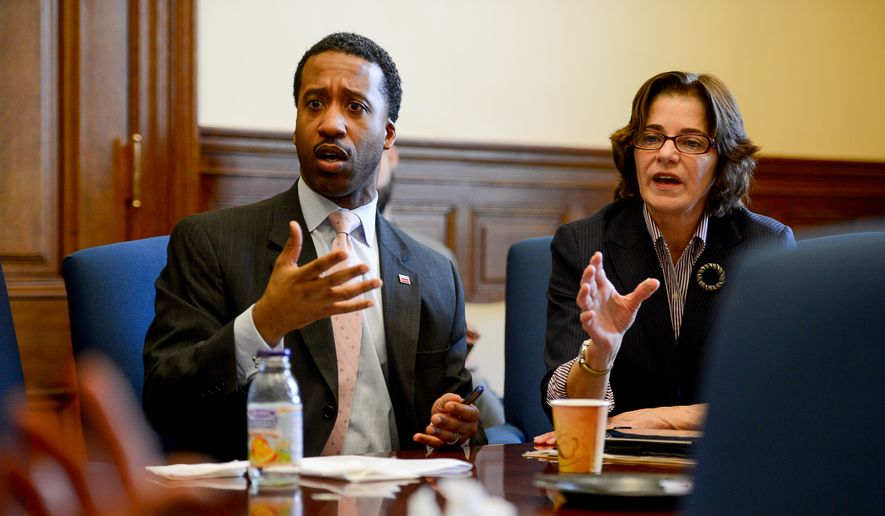The D.C. Council gave preliminary approval Tuesday to an anti-crime bill that includes a provision that would pay residents who might commit or become the victims of violent crime to stay out of trouble.
The provision is part of a comprehensive crime bill introduced by Council member Kenyan McDuffie called the Neighborhood Engagement Achieves Results Amendment Act (NEAR), which already has won kudos from the Black Lives Matter movement because it “treats and responds to violence in our community as a public health issue, integrates new approaches to prevent crime and improves law enforcement training and data collection.”
Based on a similar program in Richmond, California, the provision calls for the District to pay up to $9,000 a year to as many as 200 residents identified as being at risk for committing or being a victim of violent crimes if they participate in behavioral therapy and remain crime-free. Participation in the program would be anonymous.
“Punishment might get you to stop a practice, but that doesn’t persist,” Barry Krisberg, the University of California-Berkeley criminologist who helped devise the Richmond program, told The Washington Times. “If you want behavior to persist over time, rewards are the way to do it.”
The Richmond program “is a relational, non-enforcement based strategy dedicated to assisting and connecting these individuals and their families to culturally competent human, social and economic service opportunities,” according to that city’s website.
Mr. McDuffie, Ward 5 Democrat, is calling for a similar, “health-based” approach in dealing with crime in the District, countering an anti-crime bill presented last year by Mayor Muriel Bowser that sought more enforcement-based initiatives, including stiffer sentencing for certain offenders.
SEE ALSO: DEBORAH SIMMONS: Paying people not to become criminals, victims
The council voted unanimously to move the McDuffie bill to a second reading, meaning a final vote could be taken at the next legislative meeting in two weeks.
Financing the bill will likely become a key issue. Jeffrey DeWitt, the District’s chief financial officer, said last week that the legislation is financially untenable.
“Funds are not sufficient in the fiscal year 2016 through fiscal year 2019 budget and financial plan to implement the bill,” Mr. DeWitt wrote in a financial impact statement to the council.
Mr. DeWitt estimated that the bill proposes significant changes to the city’s criminal justice, public health and public safety programs, and would cost $3.9 million in fiscal 2016 and $25.6 million over four years.
Council members are expected to introduce some provisions from Ms. Bowser’s crime bill as amendments to Mr. McDuffie’s legislation, including one that would impose high penalties for committing crimes in city parks and on public transit. Council member Jack Evans, Ward 2 Democrat, had tried to move that provision as an amendment last week when the bill was voted out of the Judiciary Committee, but the addition was shot down.
Supporters of Mr. McDuffie’s bill say treating crime as a public health problem will do more to prevent crime than levying higher sentences on offenders.
SEE ALSO: Maryland chicken farmers seek relief from new manure rules
The District chapter of the NAACP backs Mr. McDuffie’s bill and called out Ms. Bowser for trying to slip parts of her crime bill in through allied council members.
“NAACP has supported efforts citywide to bring a public health, community based approach to criminal justice reform,” the organization said in a statement. “Mayor Bowser and members of the D.C. Council want to water down Kenyan McDuffie’s NEAR Act with ’tough on crime’ proposals from the mayor’s failed crime bill that would expand police powers and contribute to mass incarceration.”
• Ryan M. McDermott can be reached at rmcdermott@washingtontimes.com.




Please read our comment policy before commenting.